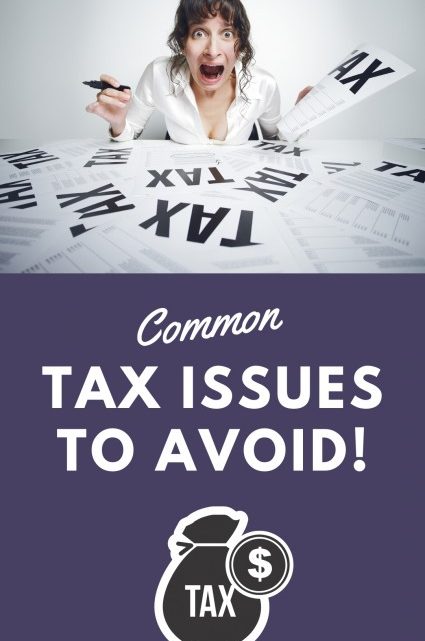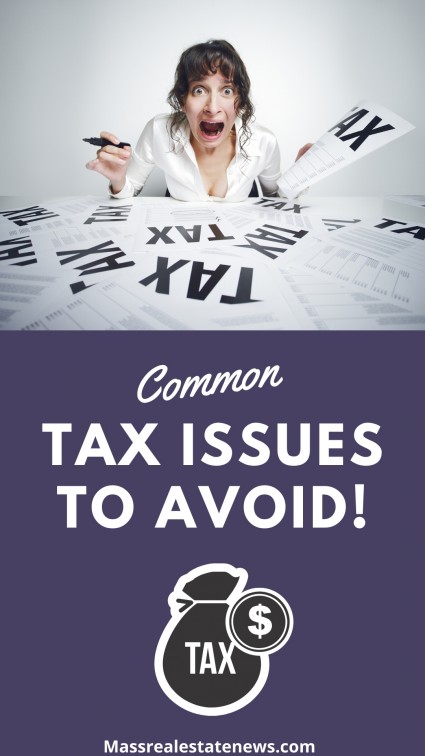4 Common Tax Mistakes Businesses Commit
“I’m so excited for tax season,” said no one ever. If you are a real estate agent or in the industry, I am sure this rings true to you. The dread that accumulates in the months prior to April is real every year.
Filing for taxes is overwhelming, to say the least, and they can get extremely complicated, especially for entrepreneurs. Even when you turn over the tax preparations to business and tax planning attorneys, you still have to gather data and compile paperwork, which is no easy feat.
If you don’t want to get worked up about your taxes year after year, you have to be more proactive. Stay on top of your transactions and avoid making these common tax mistakes. Most real estate agents are vulnerable to these mistakes being self-employed.
Lets’ take a look at some of the common tax issues real estate agents face, as well as other businesses, and how to avoid them.
1.Failure to file/ filing after the deadline
The IRS imposes severe penalties on individuals and businesses that fail to and pay their taxes on time. Missing the filing deadline alone will subject your business to a 5% monthly penalty until you file the return.
Some business owners don’t file on purpose because they can’t afford to pay their taxes at the moment. Don’t make the same mistake. Failure to file can lead to massive tax bills and penalties, and will only make the process costlier and more complicated.
If for some reason, you can’t file by the deadline, you can submit an Application for Automatic Extension to buy you more time for filing your income tax return. Those who can’t afford to pay their taxes in full can also submit an Installation Agreement Request to the IRS to avoid paying for everything upfront. Both these methods incur interest and penalties, but at much lower rates.
 2. Under-reporting
2. Under-reporting
All business income needs to be reported. This applies to all forms of transactions – cash, card, or barter exchanges. Businesses that are suspected of under-reporting their income may be subjected to an audit by the IRS.
Most cases of under-reporting involve sales taxes and payroll taxes, or what’s referred to as trust fund taxes. These taxes that the business collects from customers and employees are to be reported and paid to the proper taxing authority come tax season.
Intentionally misreporting these taxes and using them for personal or business reasons are considered tax fraud. Real Estate agents need to be particularly careful with keeping accurate records.
3. Over-reporting
The IRS entitles businesses to deduct certain business expenses from their adjusted gross earnings when calculating taxable income, which results in a lower tax bill. There is, however, a fine line that separates deducting and over deducting. An expense should be reasonable and necessary for the business to be deductible.
Operating and administrative expenses, capital expenditures, company-related travel, and employee benefits are deductible. Still, businesses need proof and supporting paperwork to justify the validity of every deduction. Companies found trying to pass a nondeductible as a legitimate business expense are fined and penalized.
The IRS has standards and guidelines in place to qualify tax-deductible expenses. They are covered in detail in Section 162 of the Internal Revenue Code.
4. Mixing personal and business expenses
The IRS expects you to keep a clear boundary between your personal and business expenses. Even a single inaccurate or unjustified deduction can draw your taxes into question and invite IRS scrutiny.
To avoid the risk of mixing business and non-business expenses, maintain and use separate bank and credit accounts for business transactions.
More importantly, always keep accurate records of your business spending – receipts, payrolls, sales, and other business-related costs. Proper and accurate record keeping will help you keep track and avail of legitimate deductions. Come tax time; it will be easier for you to identify which expenses go into your tax return.
Nobody wants to lose out on legal tax deductions, especially when they are legitimate expenses. It would be like a home buyer not taking advantage of deductions they are afforded after their purchase. The same holds true for a real estate agent.
Avoid blurring the lines between your personal and business life. Always remember that the whole point of setting up a business entity is to protect yourself from personal liability if something goes wrong.
Don’t let fear, however, stop you from getting legitimate deductions.
Tips on How to Avoid Business Tax Problems
Create a tax calendar
Every entrepreneur should have a tax calendar to help them keep track of important tax dates and deadlines. You can use tax calendars for a variety of tax-related functions like payroll dues and filing deadlines for 1099s and W-2s. Most tax-planning and accounting software has a built-in calendar feature, allowing users to organize all relevant tax information in one place.
Track all business-related expenses
Proper bookkeeping and document maintenance are a crucial part of your business’ tax plan. Maintaining income statements, purchase receipts, and other tax records make tax preparation easier.
Keeping track of all your business expenses throughout the year allows you to take advantage of tax deductions and credits for qualified business expenses. Business-related travel and entertainment, vehicle maintenance, gas mileage, legal fees, employee benefits, and awards paid to your staff all qualify as deductibles. Should you need proof to support the claims you made in your tax return, you’ll know where to find them.
Observe strategic tax planning
When you plan your taxes correctly, you find out that the tax codes present a number of valid opportunities businesses can leverage to their benefit. Savvy tax planning can help you mitigate risk and liabilities associated with business transactions. Moreover, it can save your business thousands of dollars every year in taxes and allow you to take advantage of rebates and charge-backs you may not be aware of or have overlooked.
The thing is, the legislative environment surrounding taxes can be too much and too complex for you to maneuver on your own. Consider onboarding a team of tax planning professionals to help you assess and plan your business taxes.
Entrust the tax planning and preparation to professionals
Unless you’re someone well-versed in matters of taxation, you might want to consider hiring a tax attorney to handle your business’ tax preparation and tax planning strategy.
Working with tax professionals will help you navigate the complex realm of tax laws and ensure that your business is in compliance with both federal and state tax regulations. They can also assist you and offer valuable advice on credits and deductions that could reduce your tax bills and benefit the venture.
The initial cost of engaging with an experienced business and tax attorney may be quite high. Still, its benefits and potential savings will eventually far outweigh the price in the long run.
 About the author: The above article on common tax issues in business was written by Lauren Summers. Lauren Summers is the Content Marketing Strategist for Miller, Miller & Canby, one of the most respected law firms in Montgomery County, and the Washington, DC metropolitan area.
About the author: The above article on common tax issues in business was written by Lauren Summers. Lauren Summers is the Content Marketing Strategist for Miller, Miller & Canby, one of the most respected law firms in Montgomery County, and the Washington, DC metropolitan area.
The firm focuses on five core areas of practice: Land Development, Real Estate, Litigation, Business and Tax, and Trusts and Estates Law. In her spare time, she reads books and plays board games with her husband and two kids.











No Comment